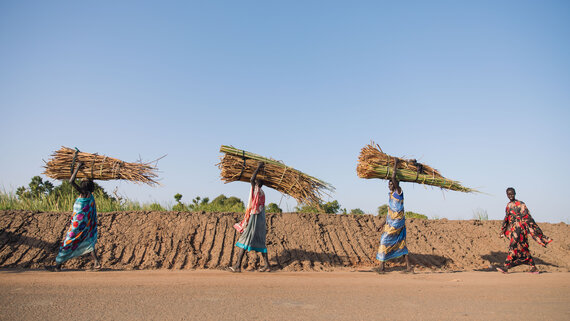Humanitarian Access
The humanitarian operating environment in South Sudan continues to be hindered by access constraints against a backdrop of inter-communal violence, armed groups mobilization, cattle raiding, national and regional political instability, economic fragility, and physical access challenges exacerbated by flooding and inadequate infrastructure. From January to October 2023, 339 incidents were reported related to these constraints, with 168 involving violence against humanitarian personnel and assets. Bureaucratic impediments, including heavy procedures, excessive paperwork, and unclear registration processes, added extra costs and, at times, led to arrests and harassment. Illegal taxation and extortion at checkpoints further delayed aid delivery, increasing expenses and transportation time. South Sudan's limited infrastructure, including inadequate road networks, transportation options, and storage facilities, compounded the logistical challenges for delivering humanitarian supplies to remote areas, particularly during the rainy season.
The Access Working Group (AWG) remains the primary forum in South Sudan, through which operational coordination, analysis, and discussion of humanitarian access issues take place. In 2023, the AWG supported the capacity of state-level implementing partners and decentralization of access problem-solving by establishing Access and Civil-Military Working Groups (A/CMWG) in five locations (Bentiu, Bor, Juba, Malakal, and Wau). The purpose of the state-level A/CMWG is to support a more efficient, coordinated, and principled humanitarian response by contributing to humanitarian partners' efforts to establish and maintain principled humanitarian access, including through sustained engagement with all actors, humanitarian dialogue, monitoring, reporting, and analysis on humanitarian access. These efforts will continue in 2024 to empower sub-national access groups to deal with access issues as and when they arise.
Operational capacity
In 2024, all humanitarian partners coordinating through the cluster approach will be considered Humanitarian Programme Cycle (HPC) partners and will contribute to achieving the South Sudan HRP strategic objectives. Significant challenges related to humanitarian access are anticipated to persist in 2024, leading to a continuous escalation of humanitarian needs. Access to vulnerable populations in hard-to-reach areas will likely remain constrained, with limited access to essential services, assistance, and information flow. The humanitarian community's capacity to address these pressing needs will be stretched thin due to multiple factors, including the conflict in Ukraine, the ongoing Sudan conflict, a global food crisis, and inflation. These compounding challenges will place significant strain on available humanitarian funding, potentially hindering the ability to meet the most urgent needs of the population.

Rubkona town, Unity State
Women walk past a dyke carrying dry papyrus reeds on their heads.
OCHA/Sarah WaiswaCosting Methodology
A unit-based costing approach was used to estimate the total cost of the overall response. The cost per beneficiary is estimated by activity and sector and by geographical location where feasible. Each cluster/sector developed a unit cost based on a realistic rationale agreed upon by their members, including estimations required to ensure mainstreaming of cross-cutting priorities. The targeted population is multiplied by each cluster unit cost to develop the requirements. This includes the cost associated with in-kind support and CVA (where appropriate) at inter-sector (joint responses) and sector levels. The overall HRP requirement is a total of all the cluster estimates.

